Capes is a superhero game about the legacy its heroes inherit, but also the legacy of turn-based tactics as a genre
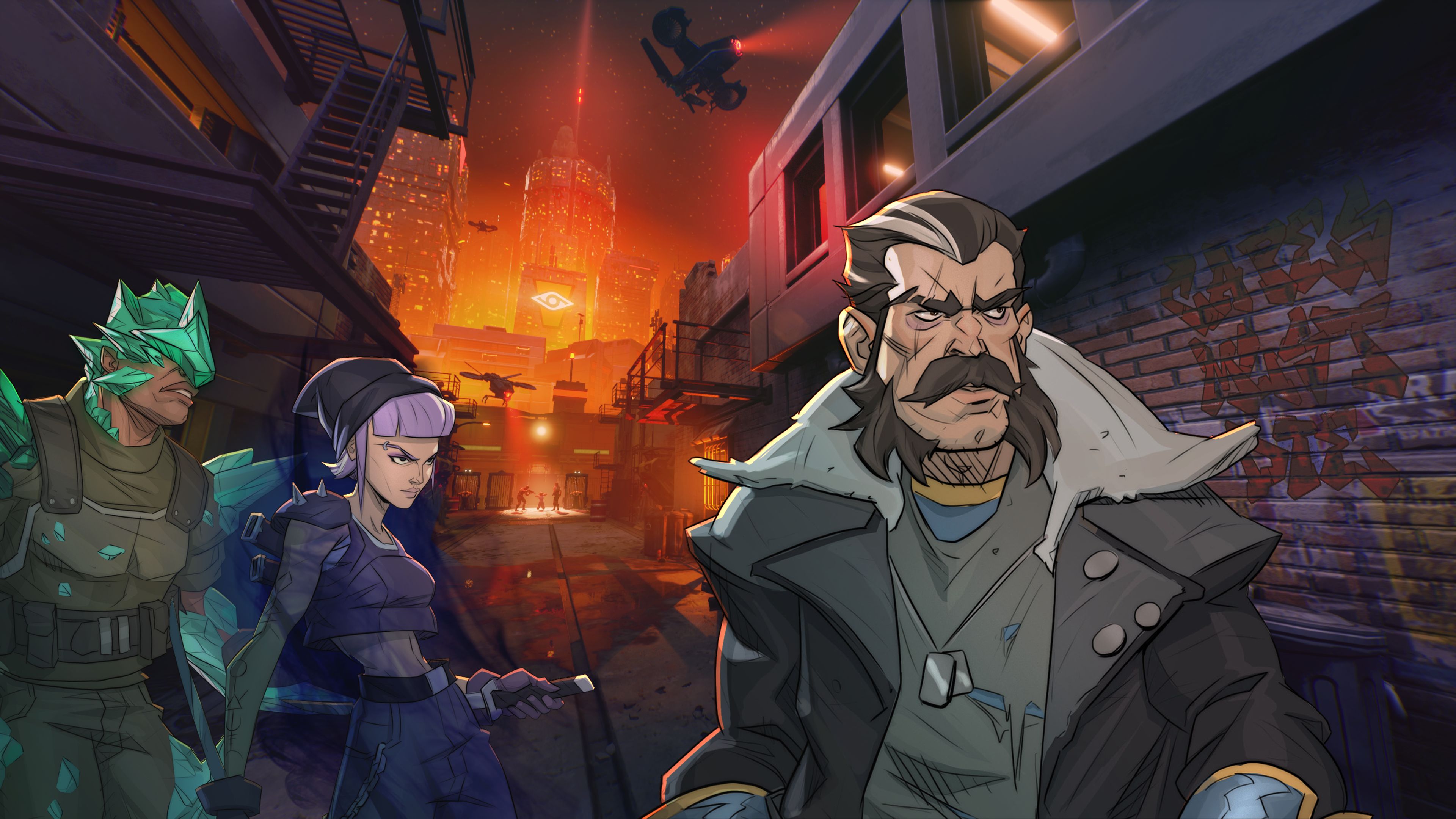
"X-Men meets XCOM" may be a glib summary, but it's not totally inaccurate.
Irrational's Freedom Force games celebrated the Silver Age of comics in all its goofy glory, with a cast of characters including a time-traveling robot called Microwave and a witch named Alchemiss. Capes evokes a later, more serious era: the Bronze Age of the 1970s and '80s, after Stan Lee ditched the Comics Code Authority's seal of approval to publish a Spider-Man story about drugs. It was a time when superhero stories became grittier, more political, and often dystopian.
Different as they are, Freedom Force and Capes share the influence of Morgan Jaffit. A writer on Capes, Jaffit was part of Ken Levine's Irrational Games during the Freedom Force era, and it's no coincidence that Capes references the period in comics history immediately following the one Freedom Force does.
"That is 100% intentional," Jaffit says. "When I was working on Freedom Force, the Silver Age of comics is really what Ken grew up with. It's a bit of a tribute to Ken's youth there. I was always interested with Freedom Force—had I had my way, we would have carried that forward through generations. We would have picked that story up in like an '80s Frank Miller version next."
Capes isn't quite The Dark Knight Returns, however. It's set in King City, where superheroes have been outlawed for 20 years, and if some poor kid exhibits unnatural abilities The Company comes to knock down their door. With heroes who are hated and feared by those they protect, it's basically X-Men meets XCOM, complete with the squabbling found-family dynamics of classic X-Men stories.
"That '80s Chris Claremont stuff," Jaffit says, "big, bold soap opera drama that is interested in the political environment it exists in, flowing across to Frank Miller, Alan Moore, British Invasion, '90s Vertigo stuff? That is my bread and butter. That's my comics history and upbringing. Hopefully that is what flows out of Capes. That's the vibe that I was certainly hoping to evoke."
The team you control in the turn-based tactics battles of Capes are a new generation of young rebels, standing up to The Company under the guidance of Doctrine, a cranky old cape who's been in hiding since being banned. Exploring that tension between experienced heroes and the brash young kids, it's a game about legacy in more ways than one, which Jaffit is keen to emphasize by explaining that Capes really belongs to others—the core team of four at indie studio Spitfire Interactive, including creative director Cade Franklin.
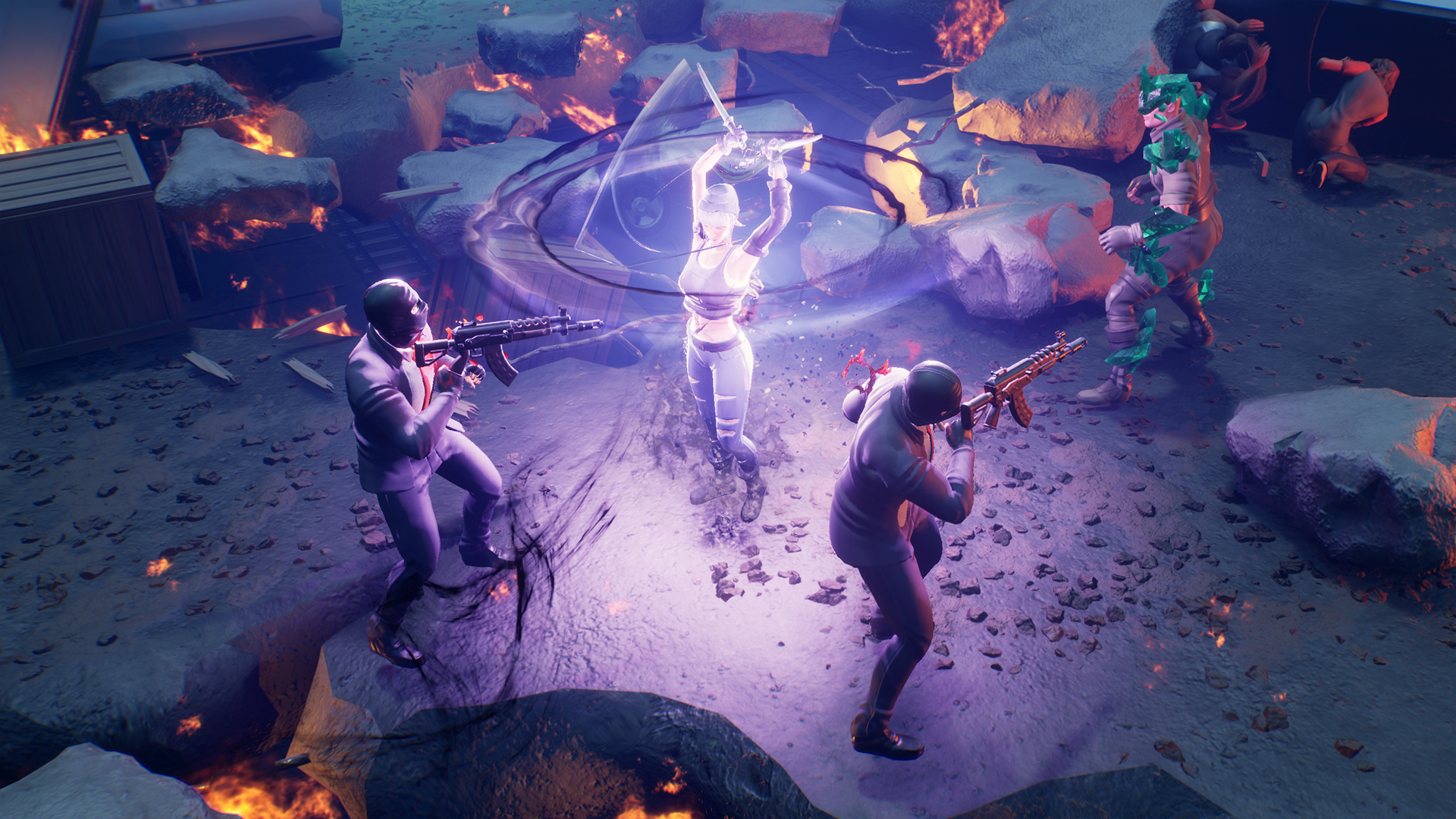
While Capes is a part of the same legacy as superhero games like Freedom Force, like every modern turn-based tactics game it's also in the shadow of XCOM, as Robin pointed out in his preview. Comparisons between the two are inevitable, which Franklin says are flattering, despite their differences. "We consciously moved away from things like RNG and cover in our game," he says. "It's much more precise in terms of what information we're providing the player and what they should expect as a result. It's more about close-quarters combat and smart positioning. Into the Breach was a big influence—it's really precise about where you're standing relative to other things in the environment, and then how you can work together."
Working together is central to Capes, as each of the eight playable characters has unique combo abilities that trigger depending who they're on the battlefield with, like Colossus hefting Wolverine for a fastball special. For instance, Rebound, the team's teleporter, can grab Facet, a slower defense specialist who grows crystalline armor, and zap him to the other side of the map. In return, Facet can summon a sharpened crystal for Rebound, making attacks like her backstab more powerful.
"I specifically remember when we said, so are we actually gonna do a combination of abilities for every hero? Is this really something we can pull off?" Franklin recalls. "There's a lot of combinations there! But it was something that, once it fell into place, I can't imagine this game without it. It totally gave us our identity, played into a lot of the themes that we were pushing toward."
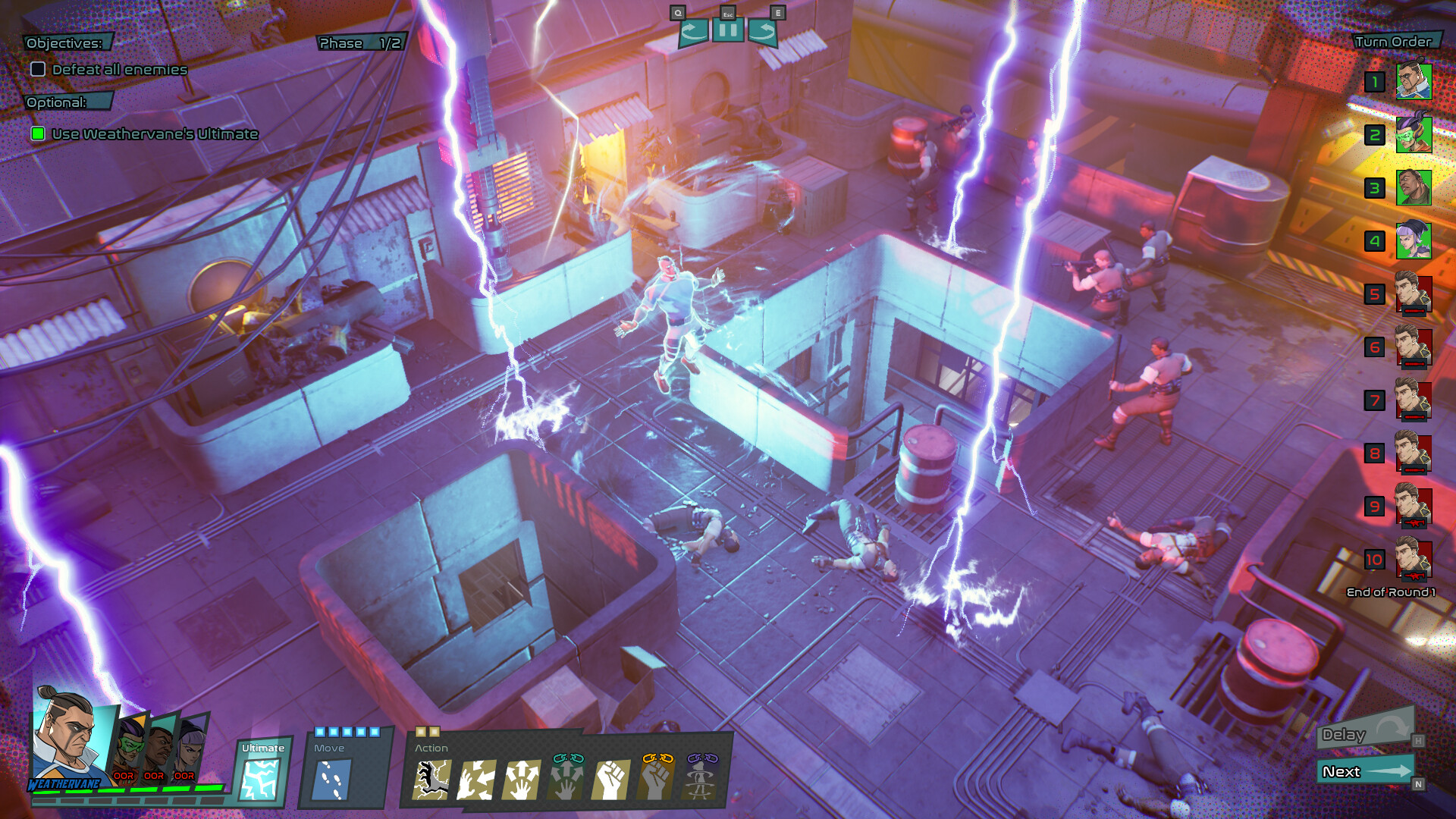
Powerful ultimate abilities also contribute to the heroes' identities. Each has to be powered up over several turns, and the way to build that charge is by playing to their style. Facet gets closer to being able to use his ultimate every time he tanks damage, so if you're not covering him in crystal armor on turn one and putting him out front, you know you're playing him wrong.
While there are conversations back at base between missions, a lot of the heroes' personality is expressed on the battlefield. Don't expect a Midnight Suns-level of relationship-building between levels. While you do get to spend skill points and replay levels in a VR simulator like the X-Men's Danger Room, perhaps with different team members, the strategy layer is minimal.
"We're spending all this time making the tactical gameplay, and we really figured that that was where we wanted to spend most of our effort," Franklin says. Every hero who goes on a mission gets some XP, and completing optional objectives earns bonus skill points, as does completing each character's personal hero objectives. "The metagame is really just about how you're progressing each of your heroes, and then it's about getting you back into the game—the combat itself—as quickly as possible."
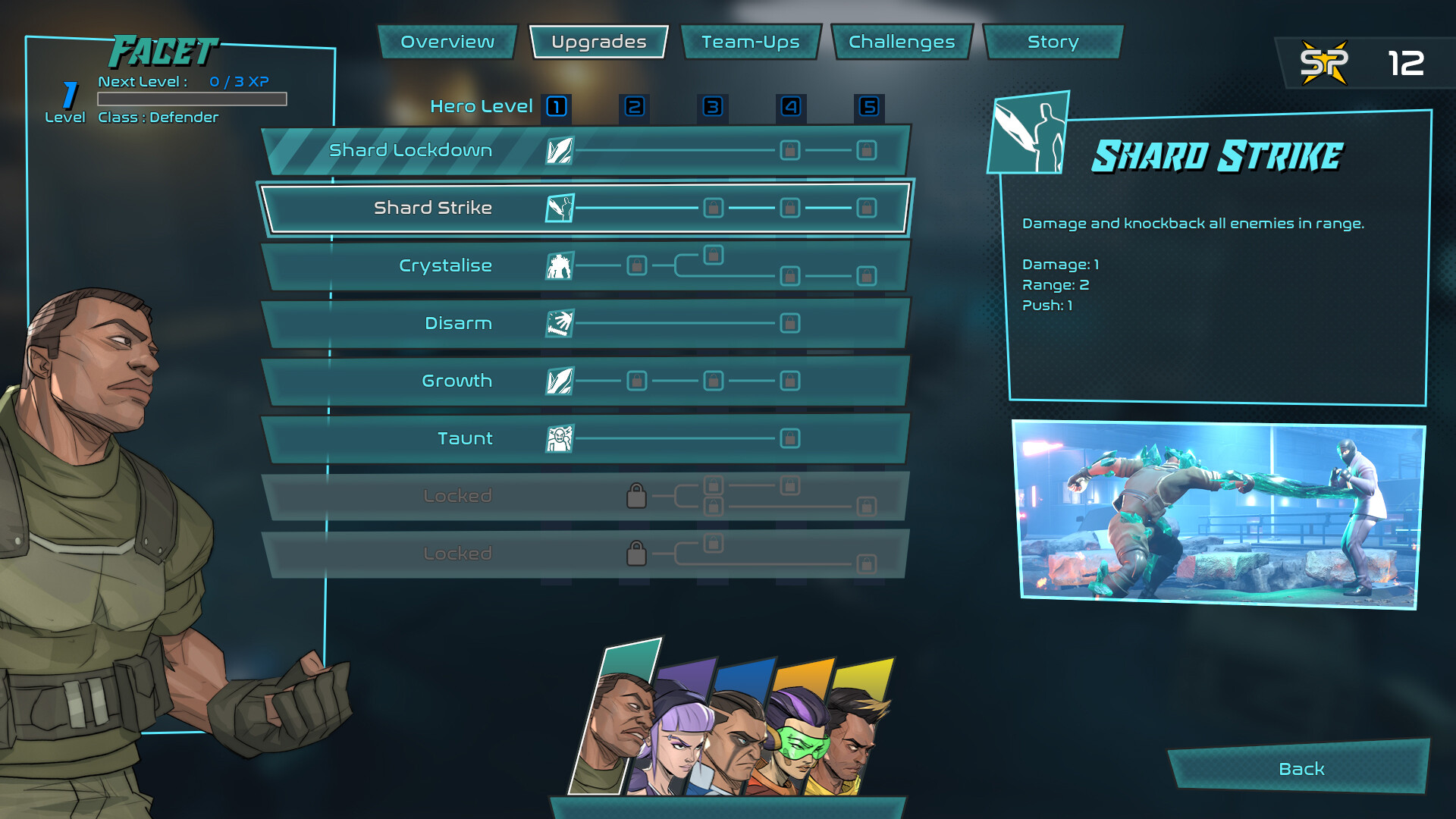
That combat, like the comics of the Bronze Age, makes its heroes relatively vulnerable. Fragile team members like the psychic Mindfire aren't bulletproof, and even a baton can mess up their day. Abilities that do plenty of damage may seem more useful than ones that disarm, but being able to minimize the amount of hits coming in is vital, especially when you go from fighting goons with guns to supervillains with powers of their own. Fortunately, even those can be disarmed—in a way.
"It escalates," Franklin says. "Generally, you only need like one point of disarm for the lower-tier enemies, but as you get to some of the more powerful villains you've got to be working as a team. And again, that plays into our mechanics of a team, that you've all got to be going, like, how are we going to stop this guy from wiping us off the map?"
"The strength of Capes is in its combinatorial complexity," Jaffit says. "We were talking about earlier how there's so many heroes with their own combos, so many possible team compositions for each challenge, so many ways to approach it depending on what you're prioritizing in terms of sub-objectives or individual hero objectives. It's an experience that takes a while to get to the meat of. I think Cade and the crew there have done a really good job of leading players into it gracefully."
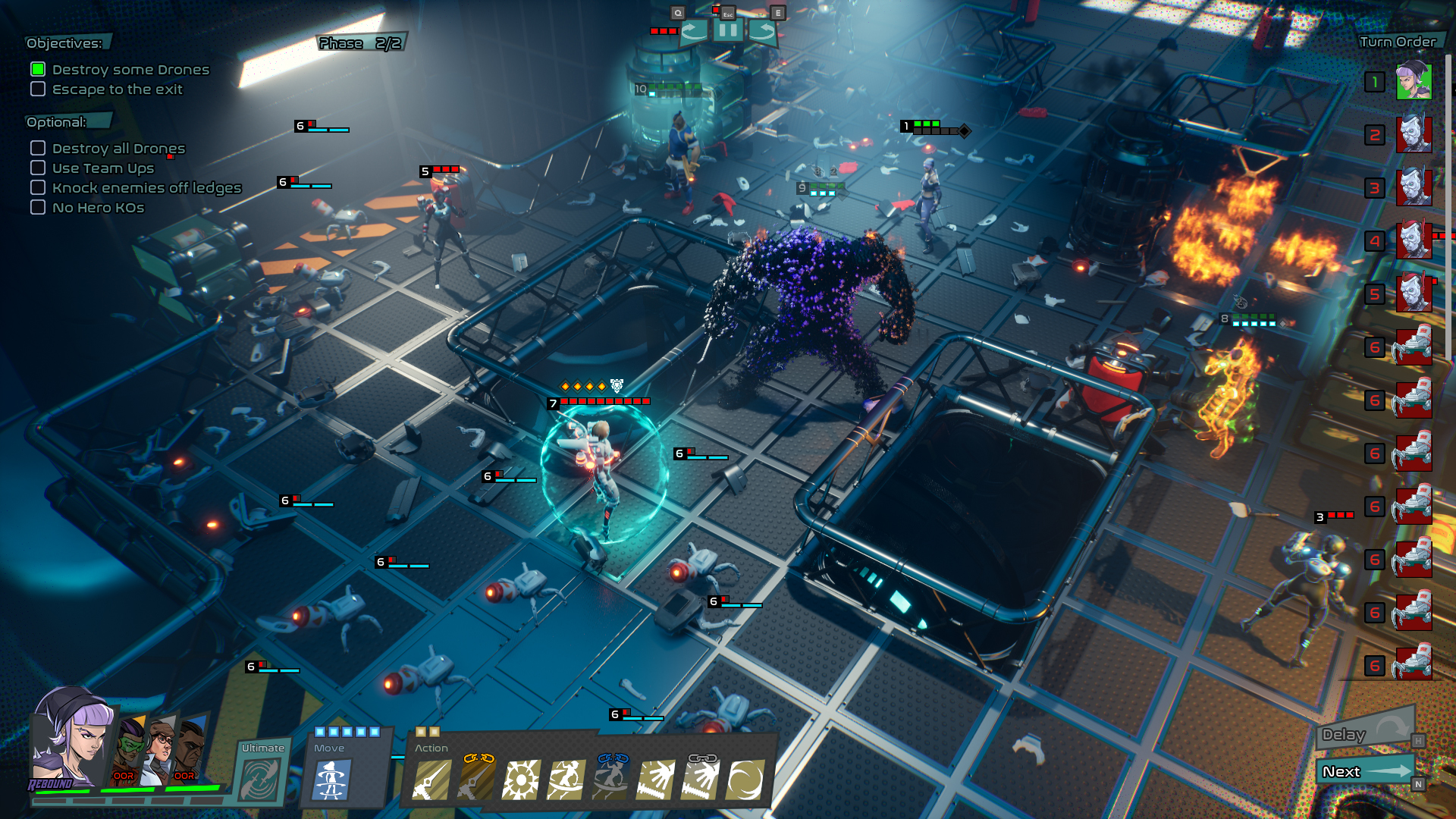
With its set cast of characters whose progression can be tweaked by player, rather than fully player-generated squadmates, Capes is closer to XCOM: Chimera Squad than the mainline XCOM games. Jaffit sees the influence of the older, Julian Gollop X-COM games as well.
"All turn-based strategy owes some legacy to the original X-COM. I think it's a really wide space and I think Firaxis really got stuck trying to work out how to make an XCOM game a billion-dollar part of their business. Whereas turn-based strategy, I don't think it's a natural fit for making billion-dollar games, but I think there's a huge amount of opportunity for making games in that space across the board."
He's basically saying that, though there's a heavy legacy weighing down on them, a small team can make a gap beneath it just the right size for them—if they work together, and combine their powers.
Capes will be available on Steam, GOG, and Epic from May 29.
